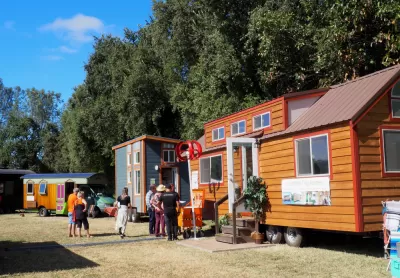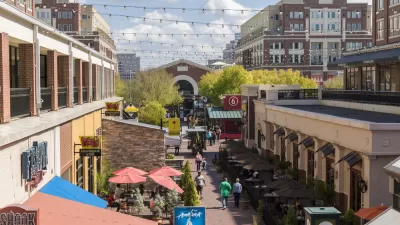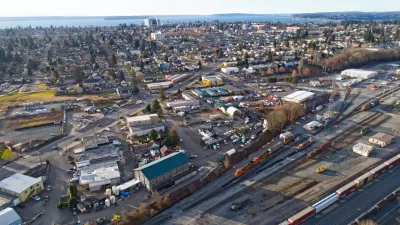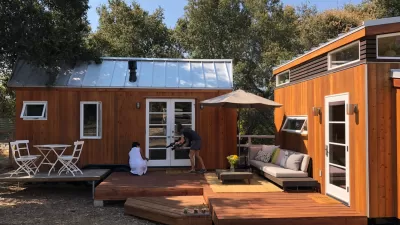We shouldn’t have to scale down the idea of basic economic security to fit inside the dimensions of a tiny house. But that’s precisely what we’re doing.

If you hang out with people who enjoy things like “clean eating,” year-long getaways, and Marie Kondo coffee table books, there’s a pretty good chance you’ve stepped inside a tiny house.
Bear in mind, we’re not just talking about a “small” house here. Tiny houses, as most of us know them, are works of architectural whimsy that have taken up photographic residence in magazines like Conde Nast Traveler. They’re packed with features such as the shower-tub combo made from a wine barrel. Some tiny houses can be latched to the back of a vehicle and taken on the road, so if you work remotely (or if money isn’t something you think about) you could park your tiny house in the Grand Tetons for a week before dragging it over to Acadia.
The tiny house fantasy wasn’t really a thing until the aftermath of the 2007-2008 housing bubble explosion and the recession. Old school lifestyle “influencers” like Henry David Thoreau were early pioneers of leading simpler lives in tiny houses. But the notion that a tiny house could also be beautiful and innovative—an idea that emerged from the crater left by the recession—feels like a backlash to the grandiose real estate fantasies that once had Americans hot and bothered. We used to dream of spiral staircases, four-car garages, and waterfall-festooned pools that could be used for music videos or orgies. When the housing market tanked, we downsized our dreams.
Today, like many ideas that begin in upper-middle-class circles, the tiny house is being prescribed as something that all of society could benefit from. Tiny houses are often framed as an ecologically sustainable alternative to the traditional roomy house—just in time for the future era of mass displacement caused by climate change. But we don’t have to wait for sea level rises to imagine how the tiny house could be leveraged as a solution to our homelessness crisis. American cities are now building their own tiny houses to address that exact problem.
In recent history, the fix for homelessness in America has been shelter beds and, ideally, a case-manager–assisted segue to long-term housing. The trouble is that permanent housing for homeless people is in short supply. Many communities aren’t keen on building it, and those that want to build aren’t getting much support from the U.S. Department of Housing and Urban Development, which funds permanent housing projects. In search of a solution, more cities are tentatively embracing the tiny house in myriad ways.
FULL STORY: Tiny Houses — Not a Big Enough Solution

Planetizen Federal Action Tracker
A weekly monitor of how Trump’s orders and actions are impacting planners and planning in America.

Maui's Vacation Rental Debate Turns Ugly
Verbal attacks, misinformation campaigns and fistfights plague a high-stakes debate to convert thousands of vacation rentals into long-term housing.

San Francisco Suspends Traffic Calming Amidst Record Deaths
Citing “a challenging fiscal landscape,” the city will cease the program on the heels of 42 traffic deaths, including 24 pedestrians.

Amtrak Rolls Out New Orleans to Alabama “Mardi Gras” Train
The new service will operate morning and evening departures between Mobile and New Orleans.

The Subversive Car-Free Guide to Trump's Great American Road Trip
Car-free ways to access Chicagoland’s best tourist attractions.

San Antonio and Austin are Fusing Into one Massive Megaregion
The region spanning the two central Texas cities is growing fast, posing challenges for local infrastructure and water supplies.
Urban Design for Planners 1: Software Tools
This six-course series explores essential urban design concepts using open source software and equips planners with the tools they need to participate fully in the urban design process.
Planning for Universal Design
Learn the tools for implementing Universal Design in planning regulations.
Heyer Gruel & Associates PA
JM Goldson LLC
Custer County Colorado
City of Camden Redevelopment Agency
City of Astoria
Transportation Research & Education Center (TREC) at Portland State University
Jefferson Parish Government
Camden Redevelopment Agency
City of Claremont





























